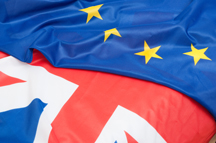The European Union (Referendum) Bill successfully passed through second reading in the House of Lords after more than six hours of intense debate on Friday 10th January.
In January 2013, Prime Minister David Cameron pledged to hold a straightforward in-out referendum on the UK’s membership of the European Union (EU) in 2017 if the Conservatives remain in government after the 2015 general election.
The EU (Referendum) Bill was introduced in the House of Commons by Tory MP James Wharton and is now being sponsored by Conservative peer Lord Dobbs through the House of Lords. If successful, the Private Member’s Bill would legislate Mr Cameron’s promise to provide the people with an opportunity to vot on the UK’s membership of the EU.
The question, which the Bill proposes to present to the British public, is “Do you think that the United Kingdom should be a member of the European Union?”
In Friday’s general debate on all aspects of the Bill, Lord Dobbs opened the discussion by saying that “the principle behind this Bill is that the people have a right to decide their own future”. Lord Dobbs insisted that a “referendum is about democracy. It is not about being anti-European or pro-European; it is about allowing people to decide their own future. It will be a brave man who denies them that choice, and an even braver unelected Peer.”
In addition to discussing the principle of the Bill, Peers debated timing of the referendum. Some heavily opposed the idea to include a fixed date for the referendum. Lord Liddle (Lab) argued that the Bill could have a negative impact on new business investment and exports and asked if “we really want to create now four years of major economic uncertainty by passing this Bill?”
Lord Liddle’s view that the Bill brings about economic uncertainty was shared by Lord Mandelson (Lab), who added that “[t]his bill is not about changing or improving the EU, it is indeed stage one in raising impossible demands on the European Union in order to create the pretext for leaving it.” Instead, “[w]e need to concentrate on using all of our influence and energy in building up Britain's influence in Europe, not driving Britain out of Europe.”
The next step is for the Bill to enter Committee stage, which is currently unscheduled. The Bill, however, must return to the Commons no later than 28 February in order to become law, as it cannot be carried over to the next Parliament. Labour and Liberal Democrat Peers have already warned they might table amendments that would stall progress.












